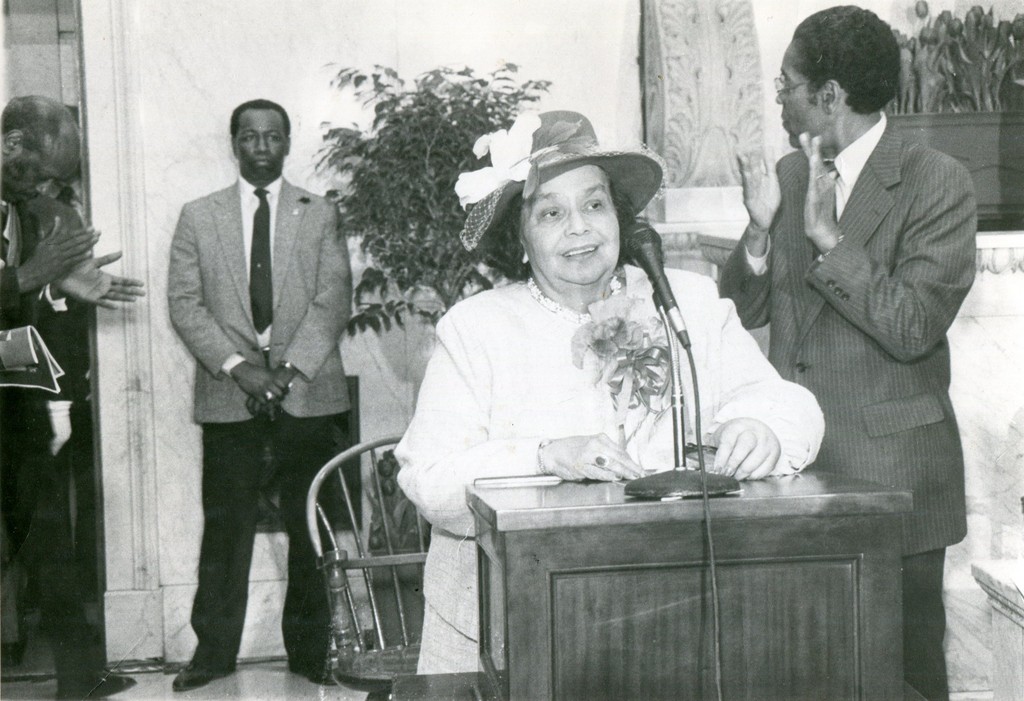[ad_1]

By Marnita Coleman
Special to the AFRO
“Baltimore!” I’d say, loud and clear. “I’m from Baltimore,” would be my response whenever folks would ask where I was from, I did not hesitate to let them know. To me, Baltimore was the perfect spot: just three hours from New York City, 30 minutes from The District (depending on who’s driving) with a major airport nearby. We might be south of the Mason-Dixon line, but we have a northern mindset. Life was good in Baltimore, our communities were kept and our history was rich. We had great institutions and there was advancement opportunities for African Americans here.
Lately, the news and opinions have not been the most favorable about my beloved Baltimore, but it does not deter me from holding this city and its citizens close to my heart. There is amazing history in this town, history that cannot be erased or overturned.

As you know, the Office of the State’s Attorney for Baltimore City is currently held by Marilyn J. Mosby. At the time of her appointment, Mosby was the youngest chief prosecutor of a major city in America. That opportunity was made possible by another young, African-American woman determined to serve her community. Juanita Jackson Mitchell, a Morgan State College (now Morgan State University) graduate became the first African-American woman to graduate from the University of Maryland School of Law and to practice law in the State of Maryland. She was a highly respected lawyer who received appointments from two Presidents. Her relentless pursuit of integration, civil rights, women’s issues, voter registration, youth movements and other legal activism made Mrs. Mitchell a pillar in the fabric of Baltimore’s illustrious history among women.
Another pillar’s portrait can be found hanging high in a chamber of the Maryland State House. Verda Freeman Welcome, the first African-American woman elected to the state senate in the United States (and clearly the first in Maryland). Prior to her appointment as senator, Verda Freeman Welcome taught in Baltimore City public schools for 11 years. She passed legislation that addressed discrimination, illegal employment practices, harassment of welfare recipients, and other reforms in the State of Maryland. “She bridged the gap between the races. She bridged the gap in terms of inequities between men and women in so many facets and aspects of our world,” said Edwin T. Johnson, assistant university archivist at Morgan State University.
Known for “Hubbardisms” and courtroom wit, Judge Mabel Houze Hubbard was the first African-American woman to serve as a judge of the District Court of Maryland. Judge Hubbard was considered tough but fair. Judge Hubbard believed it was a “duty to open doors of opportunity to African-American women,” and recruited them as law clerks because she knew those opportunities were rare.
Other pillars in the fabric of Baltimore’s illustrious history include, but are not limited to Bea Gaddy, Billy Holiday, Cathy Hughes (founder of Urban One), Violet Hill Whyte (first African-American woman in Baltimore Police Department), Lieutenant Colonel LaTonya Lewis (highest ranking officer in Baltimore Police Department), Mother Mary Elizabeth Lange (founded the Oblate Sisters of Providence), Ann Koger (Tennis Hall of Famer), and numerous others.
Baltimore is more than football, Preakness and living in Harbor East. There is history in this town, made by women who were determined to be agents of change. And for sure, there is a new breed of women in the city. You are granted access on the heels of great ones. Go forth and do your thing!
Proverbs 31 speaks of the virtuous woman as rare and more valuable than rubies. It concludes, honor her for all that her hands have done, and let her works bring her praise.
Marnita Coleman is a freelance writer, an author, and the host of The Marnita Show, a parenting show heard daily across the globe. For more information, log onto www.TheMarnitaShow.com
[ad_2]
Source link
